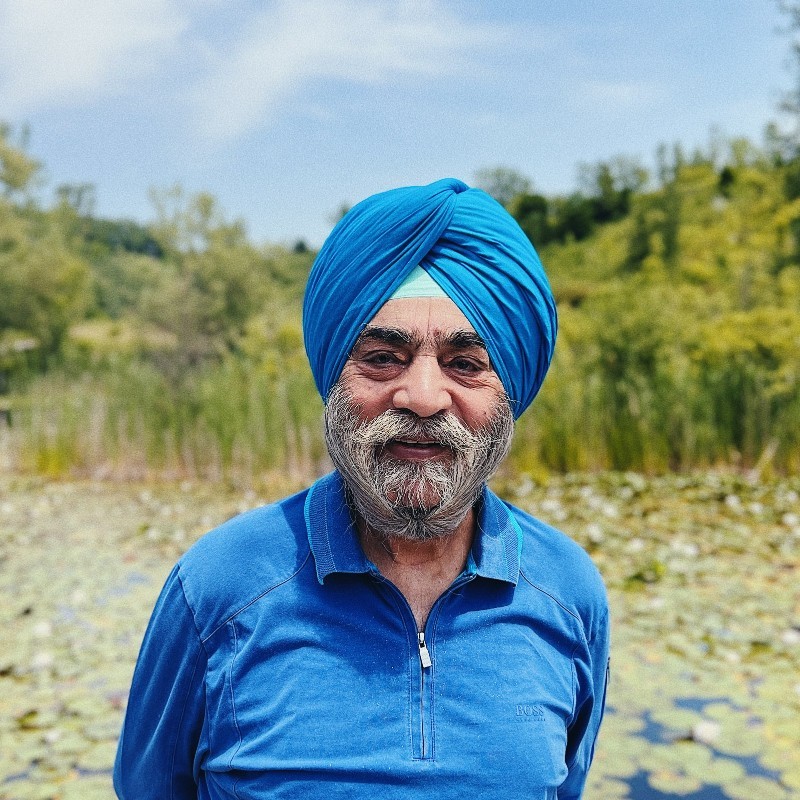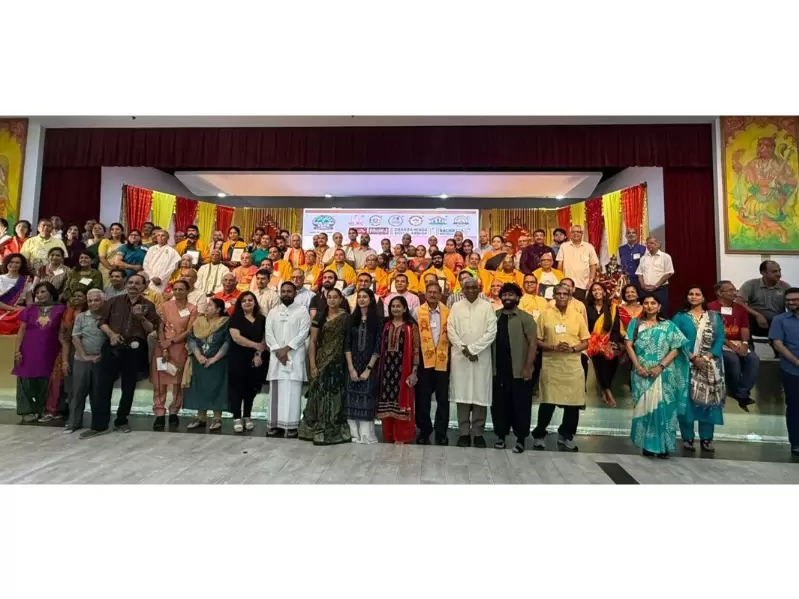For these tech-savvy Canadians, soccer and drones are an obsession
More than just a game—Drone Soccer is a movement.
 The Canadian team. / Pictures by Rajan Chugh and Prabhjot Singh
The Canadian team. / Pictures by Rajan Chugh and Prabhjot Singh
Cutting across their age groups, backgrounds, physical strengths, and intelligence quotients (IQs), they share some commonalities - their passion for soccer and drones.
What do drones have to do with soccer? Forget that unsavory controversy that hit the Canadian soccer teams in the 2024 Paris Olympic Games.
When the Olympic Games returned to the French city of Paris last year, Canadian soccer coaches with both the men's and women's teams were so "obsessed" with obtaining information about their opponents that they reportedly resorted to even unsporting means, including pressuring the members of the support staff to take part in spying activities.
Those spying activities were nothing new in the world of competitive sports. They have been pervasive for years before the Canadian coaches were caught using a drone to spy on an opponent team’s training session during the 2024 Paris Olympics warm-up games.
What happened in Paris has become a part of history now. Canada has moved ahead. So has its sports.
Putting behind the unsavoury episode of the Paris Olympics, there has been a growing number of Canadians from all age groups who want to blend technology with soccer to give Canada a new name and establish its position as a pioneer and world leader.
For this, they have chosen Drone Soccer.
Now they use Drones to master the art of scoring goals in games modelled on the conventional sport of soccer.
More than just a game—Drone Soccer is a movement. We are building the next generation of tech leaders, engineers, and innovators by making STEM learning fun, immersive, and real-world applicable, says Rajan Chugh, President, Canadian Drone Soccer.
“Bringing the future of STEM education to life with Drone Soccer! It is here where innovation meets competition in the sky. It is a sport that combines gaming, robotics, aerospace, and AI—all while teaching students the STEM skills of the future. Welcome to Drone Soccer Canada, a one-of-a-kind, high-energy, tech-powered sport designed to engage, educate, and inspire,” adds Rajan Chugh.
Incidentally, Rajan Chugh is heading the Canadian contingent to Korea, where it will participate in the inaugural FIDA World Cup.
FIDA Federation International Drone Soccer Association (“FIDA”) was established in December 2022, with Sangheub Ro serving as the President. The association is headquartered at the Drone Soccer Stadium in Jeonju, Republic of Korea. FIDA promotes the use of drones in Drone Soccer through national exchanges, contributing to the growth of the drone industry and fostering international cooperation.
Though the Drone Soccer had its origin in South Korea, one of the fastest-growing technology hub, it has quickly spread its wings to other parts of the advanced world. The United States and Mexico have already been making rapid strides in Drone Soccer.
Nigeria, Jamaica, Thailand, Taiwan, Australia, China, Costa Rica, the Philippines, Vietnam, Canada, the USA, the UK, and Spain are among the members of the FIDA.
India, Singapore, China, and Japan are among the other Asian nations that have adopted this technology-driven sport.
They say change is the only thing that is permanent. Sports are no exception. Technological advancements have been influencing both traditional and conventional sports.
Drone Soccer is one of the latest games to enter the rapidly growing world of sports. It is a blend of “gaming” – the craze of the new generation – and one of the oldest, traditional, and most conventional team sports – soccer.
Each match is 30 minutes in duration, consisting of three 3-minute sessions separated by 5-minute rest periods.
“We started only early this year. Do not go by the name. It is not a costly game. All you need is a good drone that costs around $500 Canadian. As you grow and master your skills, you can opt for more advanced and sophisticated drones. There are no limits on the capabilities and built-in features of Drones that can be used in different levels of competitions. Basically, there are four categories, starting with Class 20 and Class 40, depending upon the comfort level of the player concerned.
On Sunday morning, members of the Canadian squad were all bundles of joy, curiosity, and enthusiasm as they were about to board an Air Canada flight to Seoul. They were set to be pioneers, as 10 of them would constitute the first-ever Canadian team to play in the FIDA World Cup Championship at Jeonju.
The Canadian squad that left for Jeonju-si comprises Jannat Vaid, Ariana Juneja, Grace Juneja, Viraj Joneja, Priyanka Kaushal, Rajan Chugh, Kashif, Parminder Singh, and Devansh Punawala. Mr Bhatti is the Technical Maintenance head.
Rajan Chugh clarified that this is a gender- and age-free game, as players of any gender or age group can compete.
Manjesh is the CEO of FIDA, Canada. The sport has already made a mark in most of the initially identified 23 zones. “We are taking to schools and other institutions, adds Rajan Chugh.
Some members of the team have already represented Canada in an invitational event held in Palm Springs, US, in March this year, where Canada finished third behind the US and Mexico.
Besides the host, South Korea, there will be 31 other teams competing in the first-ever FIDA World Cup Drone Soccer Championship.


 Prabhjot Paul Singh
Prabhjot Paul Singh













.jpg)

Comments
Start the conversation
Become a member of New India Abroad to start commenting.
Sign Up Now
Already have an account? Login